The Shock of Shame
Jan Němec’s Oratorio for Prague (Oratorium pro Prahu, 1968)
Vol. 84 (April 2018) by Daniil Lebedev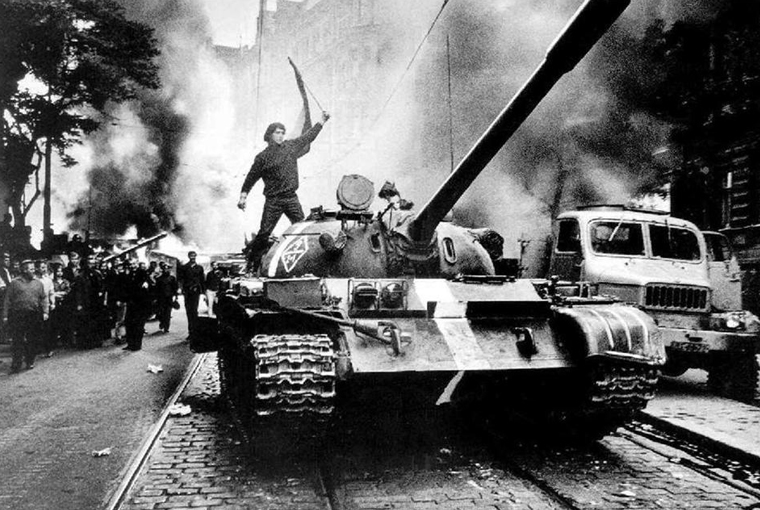
Oratorio from Prague is a good documentary in the most classical sense of the term – it is precious not as an artistic achievement, but as an inimitable document of an epoch. 50 years after the events it continues to grasp one’s attention by an incidental immediacy that underlies the core of the film. I am here talking about how circumstances of the filming transcribed the main drama of the event – which is a surprise, a shock attending the unfolding of the actual event. The story is that Jan Němec had started making a film about the victory of democratic socialism and the peaceful independence of Czechoslovakia without knowing that it was going to be a film about quite another thing. This fact turned out to be the key to the great cinematographic translation of the national sentiment in the face of Soviet aggression – the sentiment of shock, a sentiment that this is just not what it all should have been about.
We can almost feel that the camera is dumbfounded in front of what it is filming, when, suddenly, after all the dancing and hippie-parading and smiling and good-humored talking of the Prague Spring there are tanks, as if fallen from the sky, emerging evenly through a tunnel. I am trying to stress this matter of a surprise, because it is not really the violence, but rather the sheer absurdity and tragic grotesqueness of what is happening that are the main catalysts of the atmosphere of the second, “incidental” part of the movie: it is as if some kind of impossible indecency was beginning to unfold during a lavish dinner – say, if a guest went crazy, spat in the faces of his hosts, pulled down his trousers and took a dump on the dining table. And that is exactly what the Soviet invasion in Czechoslovakia had been like.
The conjecture that the occupation had been perceived by Prague citizens also in absurdist terms is confirmed by one of the banners filmed by Němec’s camera: as a form of vindication of independence, protesters had chosen to remind the commander in chief of the Soviet troops in Prague, general Pavlovsky, of some simple algebra. 1*0=0 – as if the actions of the USSR proved not so much its cruelty, as its political illiteracy.
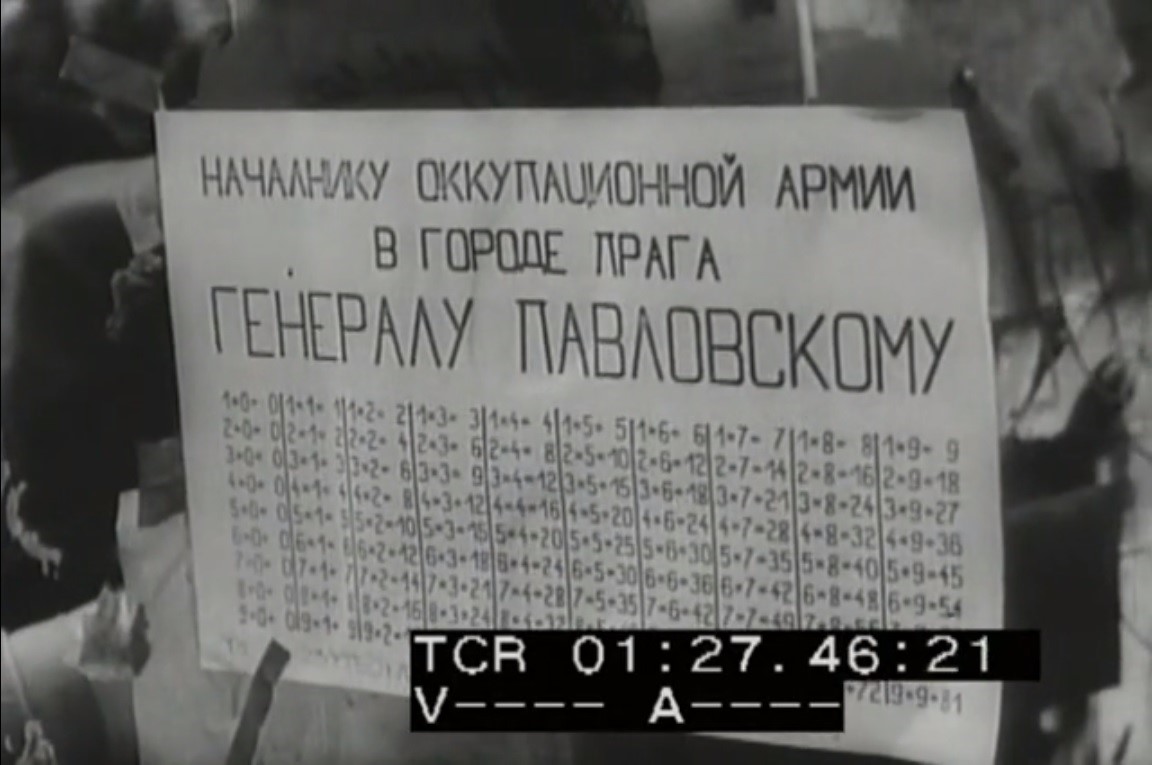
The indecency of the whole affair is one of the reasons why this event had a particular kind of response among Soviet intelligentsia at the time: not just that of an indignation or feeling of injustice, but also something more personal – a feeling of shame. The motive of the “shame of being Soviet” (Soljenytsyn) rings almost in every Russian literary expression of this theme.1 The same year The Times published an article titled “Moscow writers «ashamed».”2
All this, not surprisingly though, resembles in many ways the “annexation” of Crimea that happened in Ukraine some years ago, and that is another reason to listen closely, today, to one’s feeling at the approaching of tanks in Němec’s film. The logic of the power was the same in both cases: the USSR had presented the invasion of Czechoslovakia as a “bratskaja pomošč” (“brotherly help”); Russian soldiers armed to their teeth, “supervising” the Crimea referendum, have been officially nick-named “vežlivye ljudi” (“polite people”3). In both cases supposed reasons for the invasion were increasing nationalism and russophobia and the disrupting influence of NATO countries. Both invasions represented “the end of the party”: the Prague Spring in 1968 and the Euromaidan in 2014. But the most important common point is this political illiteracy – an insolent perpetration of every possible international law concerning the territorial sovereignty of another country. As political analyst Stanislav Belkovsky, from Russia, had said during the events in Ukraine: “Maybe Crimea should be Russian, but it can’t become Russian this way”.
So the film’s poetics are mainly constructed around this ancient collision of the “great expectations”: a sudden disruption of all things “to be”, a destruction of hopes by an extraneous force. The main emotion is close to that of the sighting of a natural disaster that is inhumane, inexplicable, punitive.
What adds to the drama is the loving, personal character of the first, “happy” part of the film. We see clearly that Němec sees himself as a proud member of a big family, not only in literal, but also in historical terms. We witness the pure joy of reappropriating one’s country and history. The main message that springs from his discourse is the reestablished continuity between the past and the present of the country that allows a clear vision of the future: thus, speaking in voice-over, he compares Dubček to Jan Hus; church oratories are mixed with American rock’n’roll; and a long take that captures the return of national customs, costumes and traditions adjoins the reflection on young Czechoslovak hippies.
The positive aspects of the young regime that are brought up by Němec contrast starkly with the situation in the USSR, which represents the oppression of the past. Thus, the part dedicated to the important role of Jews in the history of Czechoslovakia can seem unjustified if we don’t take into consideration that it is aimed directly against the rise of anti-Semitism in the 1950s USSR. The same can be said about the influence of American culture on the young generation of Czechoslovakia and the recognition of the role of the USA in the liberation of the country in May 1945. Finally, the most important dig at the USSR: there are no more political prisoners in Czechoslovakia.
It is clear that all this is not only an “oratorio”, or rather a “dirge” for the things lost by Czechoslovakians, but also a clear message to the Soviet people: that, by allowing the invasion, it is not only the future of the other country that they are annihilating, but, maybe even more so, their own. That is, probably, what Yevgeny Yevtushenko had sensed when he wrote in his poem “Russian Tanks in Prague”:
Tanks are rolling across the soldiers
who sit inside those tanks.4
The message had been very clear for the Russian thinking minority. The most famous Red Square demonstration of seven Muscovites against the August invasion had been held under the banner “Za vašu I našu svobodu” (“For our freedom and yours”).
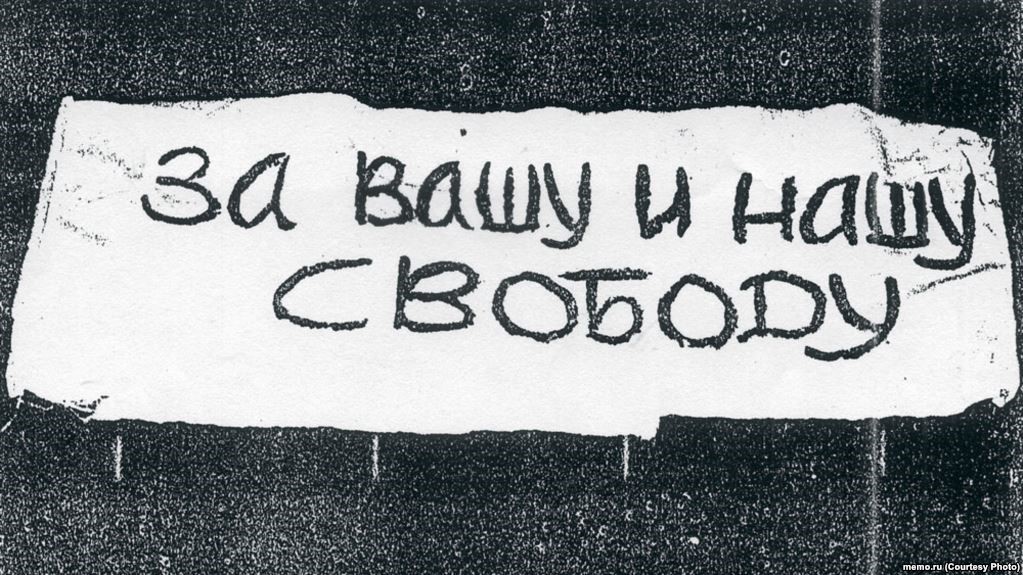
“For our freedom and yours”
For the Soviet intelligentsia the Prague Spring had been the first real example of how things could change: it was no longer a Thaw-type speculation based on an emotional craving for change without a clear understanding where it could possibly come from. No, the change was happening in Czechoslovakia and so the concern was all the more sincere, the desperation all the more profound. It is only after the events in Prague that the times of Thaw were officially over in the USSR, and the immobile 1970s started, an epoch usually characterized as that of an abrupt return to the inflexibility of the late Stalin era. Vladimir Aleinikov, one of the members of the underground group SMOG, writes that the invasion had led to a fast disintegration of many unofficial artistic groups and to the final loss of social enthusiasm and naïve optimism.5 Andrei Sakharov stated that the occupation of Czechoslovakia had buried the idea of socialism.6
Needless to say, Russia is going through the same kind of period now: the events in Ukraine had their Thaw moment in the 2011-2013 protests,7 which were cut short by the Bolotnaya Square case8. So when in 2014 the point of the Russian government was made clear – on the territory of another country, just as in 1968 – the years that followed have been depressing ones. According to April results of a Levada-center poll, protest sentiments of Russian citizens have attained a 10 year minimum.9 Today, less than 10% of Russians are ready to take part in any sort of protest activity.

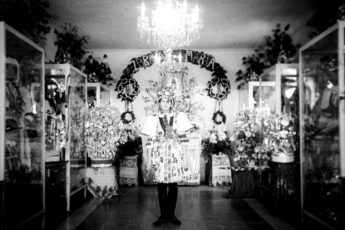
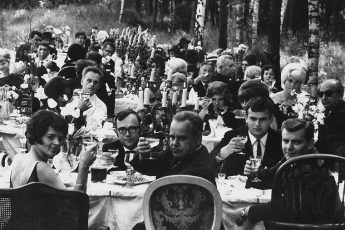
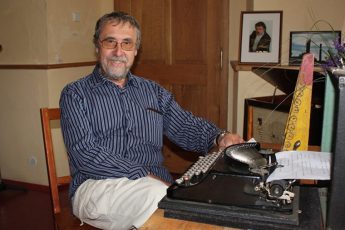
Leave a Comment